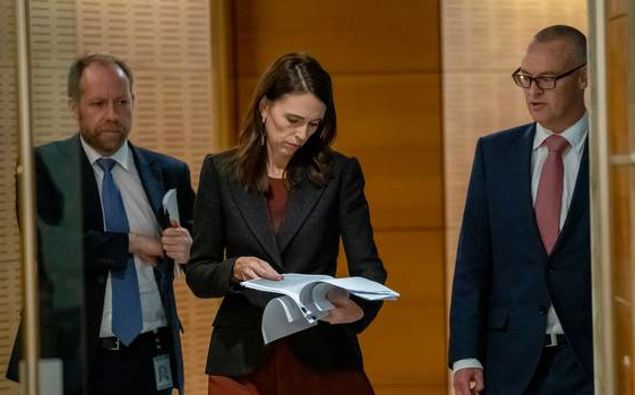Please note – this is from Mike Hosking, hardly one of the
most reliable sources out there
51 of 55 people who left
isolation early were not
tested

24 June, 2020
The Ministry of Health has finally revealed how many of the 55 people who left managed isolation early on compassionate leave were not tested for Covid.
The answer is 51.
Of the 55, 39 have now tested negative, seven won't be tested for medical reasons or because they are children and one was wrongly counted because their leave application was withdrawn. Of the remaining eight, four are awaiting test results and four still haven't been tested.
Right up to last night, neither Health Minister David Clark nor health chief Dr Ashley Bloomfield could provide these specific details, following revelations last week that two sisters from the UK had left an Auckland hotel early, without being tested. They made a road-trip to Wellington where they tested positive for Covid.
As the Government announced new border testing moves, Clark and Bloomfield faced more questions about why, after a week, they still could not say how many of the 55 had been released early without having had a test.
National leader Todd Muller described it as a "national disgrace".
The answer finally came through last night – 51 of the 55 had left early without a test, the Ministry of Health said.
And of the four that had had a test, two were tested on the day of departure so they must have been released by staff without knowing they were negative.
Auckland University medical professor Des Gorman said it was hard to imagine so much liberty was allowed at the border. While many of the early-release people might not be found to be infectious now, that did not mean they were not infectious at the time, he told Newstalk ZB's Mike Hosking.
He said the system failures were extraordinary.
"I have just been dumbfounded that all of this stuff wasn't in place in February."
Gorman agreed with Hosking that the total 2159 people who left managed isolation between June 9 and 16 would not be tracked down now. "While we don't want to over-egg the souffle, we have to make the assumption these people have reseeded the infection in the community. We have to act accordingly to quickly re-achieve the elimination."
Gorman said in order to stay safe, people needed to retain hygiene habits - including washing hands and, if they felt unwell, staying at home and getting tested in more serious cases. "I think we can rely on the military to get the border right. They don't have the same lack of discipline you have among many health officials."
He said rest-homes, retirement villages and the elderly had to be properly protected "this time", with proper boundaries for the vulnerable.
The Government also needed to sort out contact-tracing, Gorman said. It was taking days to find people's contacts - a "ridiculous" amount of time.
The Government has ordered regular mandatory testing of people working at the border including air crew and people working in quarantine and isolation centres as it faces continued pressure over past failures.
Clark said the new testing regime would also include such people as drivers who ferry arrivals from the airport to isolation, cleaners, immigration, customs, and biosecurity and security staff.
Air New Zealand crew would be regularly tested, Clark said, but he could not say whether air crew from non-New Zealand airlines flying from hotspots such as India or the United States would be tested.
Two new cases of Covid-19 were confirmed yesterday, and with one of the sisters from Britain recovered, the current number of active cases is 10.
Six are from India, one from Britain, two from Pakistan and one from the United States.
All are in quarantine except the sister from Britain who is in self-isolation in the community in the Hutt Valley.
The failures in testing at day three and day 12 of 14-days managed isolation came to light only after the sisters were released early but tested positive after driving from Auckland to Wellington.
They were two of 55 people in 14-days of managed isolation who were allowed to leave early on compassionate grounds since June 9 when routine testing at day three and 12 was supposed to have started.
Announcing the new testing regime, Clark said that to ensure surveillance testing of the population was appropriate and equitable, the Ministry of Health would rigorously monitor testing rates across district health boards and population groups.
The ministry would conduct a weekly review of testing by each DHB and by ethnic group.
"We will be requiring DHBs to take specific actions to increase access to testing for population groups where there is significant variation to national or regional average rates."
Prime Minister Jacinda Ardern faced questions from Muller about whether the testing that had taken place had been legally mandatory or voluntary.
Ardern insisted that there had been a firm legal basis for mandatory testing before this week's new Health Order, even though forms given to arrivals said consent was required before a test was taken.
Ardern defended the country's border policy, saying New Zealand was one of only two countries in the world requiring 14 days quarantine, and that required compulsory testing.
"We treat the border with absolute caution. We have some of the most stringent restrictions in the world. There is no playbook for this pandemic, but I stand by the restrictions we have in place."



No comments:
Post a Comment
Note: only a member of this blog may post a comment.